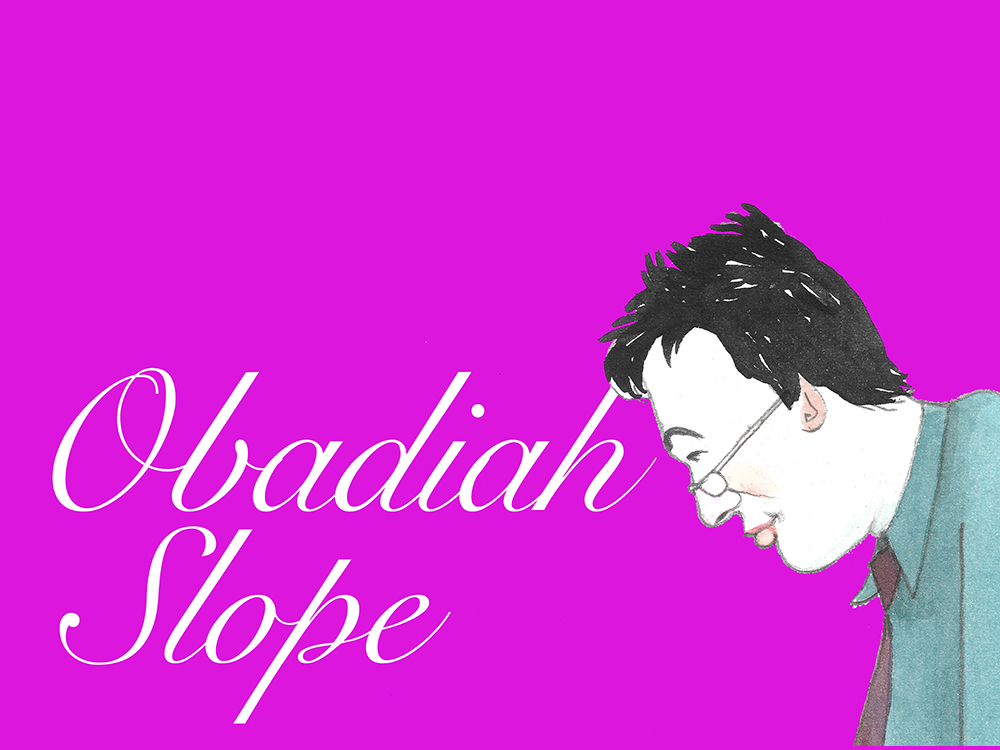Quicktime: A small but heated discussion has got Obadiah thinking about how the internet leads us to want instant gratification in arguments. A post by Sydney Anglican Dani Treweek on her substack site had just been up long enough for the pixels to dry before there were a series of refutations. Now Obadiah is a bear of small brain, and Dani was coming up with some new thoughts (to him). So it took Obadiah time to think through what she was saying about a meme on marriage from a pastor named Paul Washer – decoding what he said and then Dani’s take on each sentence of Washer. Obadiah liked her comments, BTW.
But the vehemence of the refutations, however well meant, troubles Obadiah. It may be simply that other people’s brains work faster than his. And a concern for the the Bible is commendable. But perhaps it would be better to let the words of others sit with each other a little longer before responding. And, yes, Obadiah has been a serial offender on threads! He admits that.
At the risk of being a tone policeperson, Obadiah suspects the unsettling thing is the idea that any Christian who disagrees with you has to be slapped down quick-smart. Sometimes a gentle tone is better. Including what you agree with the person you are writing about, as well as what you disagree with, is always a great idea.
###
Voice: This popped up in Obadiah’s feed, and he thought it was about something different. He almost clicked!

###
Connections you don’t want: Givesendgo, a Christian fundraiser site that swooped in to be the Christian version of Gofundme which refused to take some Christian fundraising, has become a magnet for less savoury purposes. Govesendgo has “operated campaigns for Derek Chauvin, the officer who killed George Floyd; Kyle Rittenhouse, the teen who shot and killed two men in a riot following Floyd’s death; Proud Boys leader Henry “Enrique” Tarrio; protesters involved in the racist and antisemitic 2017 march in Charlottesville; and “patriots” arrested in the January 6 Capitol attack,” according to a piece by journalist Steve Rabey on the Julie Roys news site. Obadiah sees this as part of the merger of Christianity and Trumpism that has derailed Christianity in the US, which is, of course, a statement of the bleeding obvious. still, one must weep.
###
Six weeks to go: Obadiah is of the view that the vote on the ides of October is just about a proposal to have a Voice. Not whether you want to take a swing at smug lefties or to endorse the Uluru statement. you might like or not like the Uluru view of the world, but we are only dealing with one practical point at this time, whether we want a voice.
However, some Christians are concerned that the Uluru Statement talks about Aboriginal people having a spiritual link to country. Obadiah found a description by Mandy Jones, a missionary who taught at Nungalinya College, helpful. During a voice debate at Hoxton Park Anglican in Western Sydney, she said, “The principal of the college was asked recently, what do you think of smoking ceremonies? … He made the observation that people up north, the people in the cities, and the people in the centre probably have different understandings of what happens with smoking ceremonies.” (The views of Bishop Greg Anderson and others on smoking ceremonies are detailed in an Eternity article Obadiah wrote on smoking ceremonies.)
“Some of them will be Christian people who will have a different understanding of a smoking ceremony. And people who are not. Just the fact that somebody has that background doesn’t mean that [smoking ceremonies are] what people think it does. When Aboriginal people talk about being spiritual, I think some of the time they mean the non-material. We have bits of paper that say we own the land; we have money that you grab hold of [that is] material.
“They’re trying to voice something that says their connection with the land is something deeper than that. And they need words for that. It’s not about things; it’s something more.”
###
Anglican Media watch: The Melbourne Anglican has got itself into a spot of bother over reporting a new Archbishop for Brisbane, Jeremy Greaves, who can be fairly seen as a theologically progressive appointment. Greaves’ appointment has been criticised by conservatives who point to an answer to a Rachel Kohn interview on the ABC website.
It’s not a gotcha moment; Kohn is giving lots of space to space to three progressive Christians Fred Plumer, President of the Centre for Progressive Christianity; Margaret Mayman, a progressive with a Uniting Church background; and Jeremy Greaves in his former role as Dean of the Darwin Anglican Cathedral. Kohn is a good interviewer. Not a bad line-up, Obadiah thinks, for working out what “progressive Christianity” stands for. Here’s the section that has caused Greaves some grief.
“Rachael Kohn: How alternative then is the cathedral?
“Jeremy Greaves: It’s one of the great challenges of being here at the conference, because being a cathedral, we notionally need to look Anglican in our worship and the words we use in the structure of our liturgy, and I guess the challenges about moving and bridging that gap between the sorts of things I preach about and talk about and the way we worship. And we play around the edges of our worship, but I think the great challenge is about moving beyond playing around the edges, so that the whole our worship becomes creedal, it really expresses what we believe as a community.
“Rachael Kohn: Do you specifically then have difficulties with the Apostles’ Creed that you might like to rewrite it or ditch it?
“Jeremy Greaves: I’d be happy to abandon the Creed. And it’s certainly a point of conversation with some of my colleagues in Darwin. And I think when so much of the rest of our worship talks about spirituality and God in very different ways, to then stand and recite the Creed, particularly after some of the sermons that get preached in the cathedral, seems a very odd thing. There’s a great dissonance and the real challenge is how we move past that, I think.”
Apparently, the Melbourne Anglican noted the creed comment. But then deleted the par, telling their Facebook followers: “Hi all, Elspeth [the Editor] here. Thanks for identifying this, it looks like I did miss a bit of context here. My apologies; I’ve updated the article to remove those comments.”
A better response might be to report the issue fully.
For example, here’s what the conservative Sydney Anglican blogger David Ould had to say recalling his earlier report about Greaves “He gained notoriety for himself when Dean of Darwin Cathedral as a proponent of “progressive Christianity”, most recently being lead organiser of the 2016 “Common Dreams” conference in Brisbane. He is an outspoken supporter of same-sex marriage, but perhaps even more troubling he rejects key understandings of Christianity that he will be required to reaffirm at his consecration (having already promised at his ordination to teach them). One particular example will suffice.
Ould then quotes the Rachael Kohn interview.
Jeremy Greaves addressed the issue in the Southern Queensland paper Anglican Focus back in May.
Here’s a key quote “About 13 years ago, while serving as the Dean of Darwin, I said during an ABC Radio National interview that ‘I’d be happy to abandon the creed.’ This comment inadvertently made for a terrific headline and clickbait.
“With the wisdom of hindsight, I would express myself differently. At the very least, I would unpack the nuances of what I meant regarding the challenges of including the Creed in our regular worship services. This is especially given that the then-Dean of Darwin had no idea that six years later, he’d be a Bishop and that his words might carry more weight – or at least spark more interest.”
Does the Greaves piece answer Ould’s criticism? Both the Kohn interview and the Greaves Anglican Focus column demand careful reading. Obadiah says, “Let the reader understand.” We think there are follow-up questions to ask.
One thought from Obadiah: perhaps “progressive Christianity” sits better within the Uniting Church’s Basis of Union, which acknowledges the creeds as “framed in the language of their day” but doesn’t give them the level of binding authority as the Constitution of the Anglican Church of Australia’s Fundamental Declarations which states that church “holds the Christian Faith as professed by the Church of Christ from primitive times and in particular as set forth in the creeds known as the Nicene Creed and the Apostles’ Creed.”
Finally, Obadiah wishes The Melbourne Anglican team, who have a difficult job, the best.

